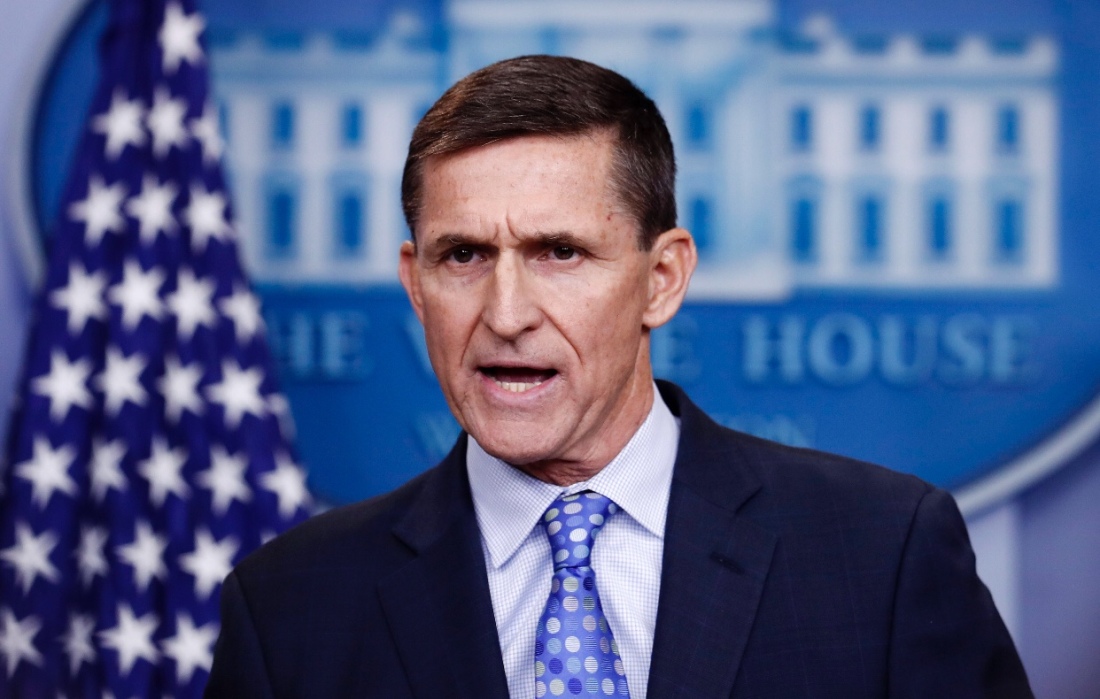 Flynn Pushed to Share Nuclear Tech with Saudis
Flynn Pushed to Share Nuclear Tech with Saudis
WASHINGTON (AP) — Senior White House officials pushed a project to share nuclear power technology with Saudi Arabia despite the objections of ethics and national security officials, according to a new congressional report citing whistleblowers within the administration.
Lawmakers from both parties have expressed concerns that Saudi Arabia could develop nuclear weapons if the U.S. technology were transferred without proper safeguards.
The Democratic-led House oversight committee opened an investigation Tuesday into the claims by several unnamed whistleblowers who said they witnessed “abnormal acts” in the White House regarding the proposal to build dozens of nuclear reactors across the Middle Eastern kingdom.
The report raises concerns about whether some in a White House marked by “chaos, dysfunction, and backbiting” sought to circumvent established national security procedures regarding nuclear power technology. It also comes as Trump son-in-law and senior adviser Jared Kushner is developing a Middle East peace plan that could include economic proposals for Saudi Arabia.
The White House did not immediately respond to a request for comment.
According to the report, the effort was pushed by former national security adviser Michael Flynn, who was fired in early 2017. Derek Harvey, a National Security Council official brought in by Flynn, continued work on the proposal, which has remained under consideration by the Trump administration.
Rep. Elijah Cummings of Maryland, the chairman of the House Oversight and Reform Committee, announced the investigation Tuesday.
Relying on the whistleblower accounts, email and other documents , the committee’s report details how NSC and ethics officials repeatedly warned that the actions of Flynn and one of his senior aides could run afoul of federal conflicts of interest law and statutes governing the transfer of nuclear technology to foreign powers.
The probe puts new scrutiny on Flynn’s early days in the administration as he awaits sentencing for lying to the FBI in the Russia investigation. Congressional investigators are also probing the role of Tom Barrack, a proponent of the nuclear proposal who ran Trump’s presidential inaugural committee, which is separately under investigation by federal prosecutors in New York. Rick Gates, a former Barrack employee and cooperator in special counsel Robert Mueller’s investigation, was also involved in advocating for the nuclear proposal.
An attorney for Flynn declined to comment. Harvey and representatives for Barrack did not immediately return requests for comment.
According to the report, the whistleblowers came forward to the committee because they had concerns “about efforts inside the White House to rush the transfer of highly sensitive U.S. nuclear technology to Saudi Arabia in potential violation of the Atomic Energy Act and without review by Congress as required by law — efforts that may be ongoing to this day.”
The report tracks closely with public reporting, including a 2017 article by the nonprofit news outlet ProPublica, which detailed some of the concerns raised inside the National Security Council about the nuclear proposal — known as the “Marshall Plan for the Middle East — advocated by a company called IP3 International.
IP3 is led by a group of retired U.S. military officers and national security officials, including retired Rear Adm. Michael Hewitt, retired Army Gen. Jack Keane and former Reagan national security adviser Bud McFarlane. IP3 and other proponents of nuclear power in the Middle East argue that the U.S. needs to be involved because otherwise it will lose out to Russia, China and others on billions of dollars in business. They also say that the U.S. involvement — and the limits on nuclear fuel that come with it— are essential to stem an arms race in the region.
IP3 did not immediately respond to a request for comment.
Up until the month before he joined the Trump administration, Flynn listed himself as a consultant to a previous iteration of Hewitt’s company advocating a similar nuclear power proposal, though the company told The Washington Post that Flynn was offered a role as an adviser but never formally came aboard.
Still, according to the report, Flynn served as a conduit for IP3 inside the White House.
Just days after Trump’s inauguration, the company sent Flynn a draft memo for the president’s signature that would have appointed Barrack as a “special representative” in charge of carrying out the nuclear power proposal and called on the director of the CIA and the secretaries of State, Energy, Treasury and Defense to lend him support. The report also quotes former deputy national security adviser K.T. McFarland as saying Trump personally told Barrack he could lead the plan’s implementation.
The report also catalogs the actions of Harvey, the Flynn confidant who was put in charge of the NSC’s Middle East and North African affairs.
According to the report, upon entering the White House in January 2017, Harvey saw his mission as getting Trump to adopt the nuclear proposal despite the objections of ethics and national security officials. Even when H.R. McMaster, who replaced Flynn as national security adviser, and NSC lawyer John Eisenberg directed for work to stop on the proposal because of concerns about its legality, Harvey ignored them and continued pursuing the proposal, according to the report.
Harvey was fired from the NSC in July 2017. He then joined the staff of GOP Rep. Devin Nunes of California, a Trump ally and the former Republican chairman of the House intelligence committee.
___
Associated Press writers Darlene Superville, Ben Fox and Stephen Braun in Washington, Jim Mustian in New York and Jon Gambrell in Dubai, United Arab Emirates contributed to this report.
___
Read the report: http://apne.ws/yuaJskv
Copyright 2019 The Associated Press. All rights reserved. This material may not be published, broadcast, rewritten or redistributed.
No comments:
Post a Comment